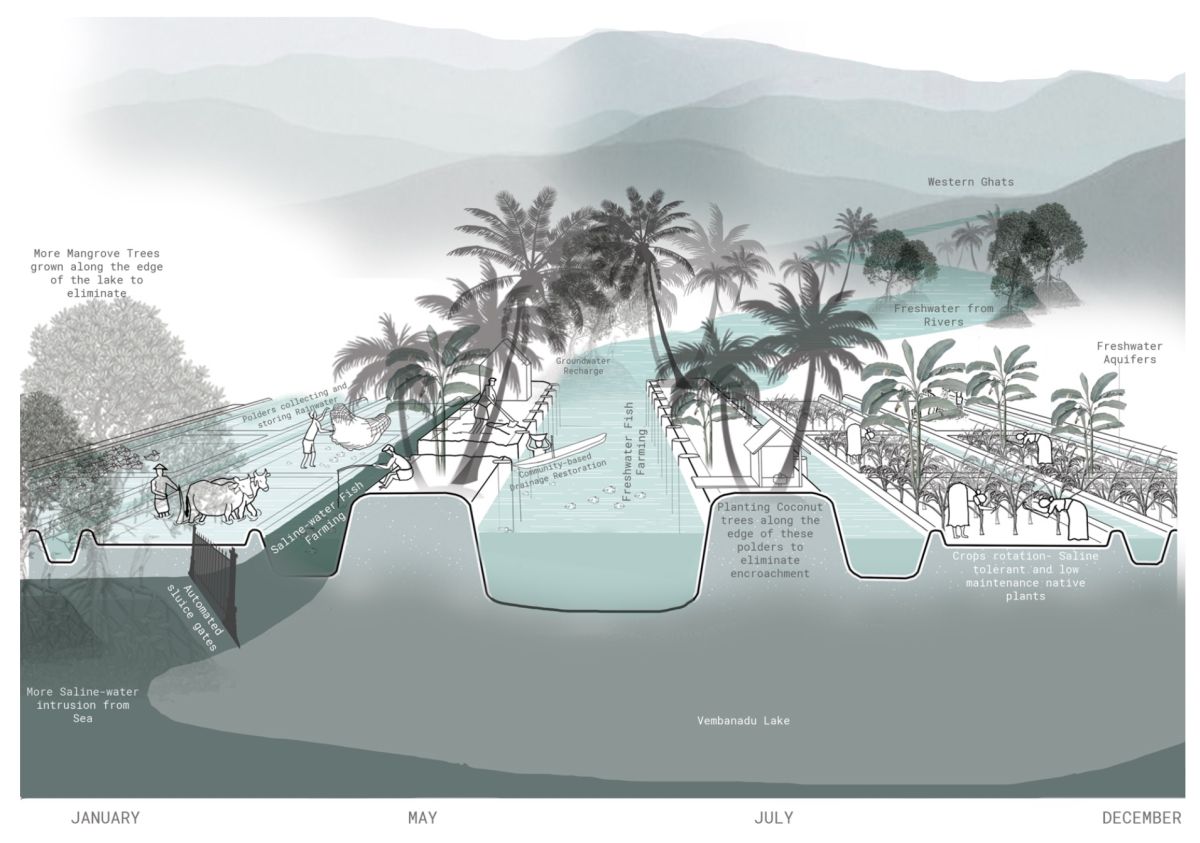Dissertation and Exhibition introduces students to the diverse realm of landscape architectural research. The module is structured into two distinct elements: the Research Methods workshop and the individual dissertation.
Following weekly exercises in which landscape and architecture students worked together, students chose a theme to focus on further and to develop and expand on it using any of the methods discussed in the seminars. Building on the methods learned in the Research Methods workshop, students develop and define their own research question, methodology and analysis of their chosen area of interest in their individual Dissertations. The projects are supported by a series of interdisciplinary methodological lectures and a series of landscape focussed research talks delivered by invited guests.
Research Methods Workshop
The Research Methods Workshops allowed students to acquire key skills in developing and conducting empirical research. Supported by a series of interdisciplinary methodological lectures and landscape-focussed research talks, MLA students work in an interdisciplinary workshop setting alongside Architecture students and a dedicated lecturer. In 2024/25, five Research Method Workshops were offered to MLA students, offering a meaningful and ambitious range of methodological engagements from decolonial thought, architectural history, narrative techniques, to mapping, oral histories and archival research.
Dissertations
The MLA Dissertation is the capstone project of a student’s academic journey, marked by a tradition of critical intellectual enquiry and in complement to the student’s atelier work. The Dissertation is a comprehensive landscape architectural research project and a substantial undertaking of approximately 10,000 words that develops a student's ability to conduct high-quality original and empirical research within the interdisciplinary field of landscape architecture. Through a series of lectures, seminars, and one-on-one tutorials with dedicated tutors, students develop a rigorous understanding of methodological and theoretical questions, turn to ethical considerations, and learn how to frame research in pursuit of a rigorous and coherent argument that relates to urgent contemporary and historic landscape transformations.
But MLA Dissertations are also more than that: driven by a pedagogical understanding of writing as a landscape architectural practice, the dissertation allows students to acquire self-authorship, reflect on their own positionality within landscape architecture and the world itself, and critically probe the epistemic foundations that undergird their landscape architectural practices.


